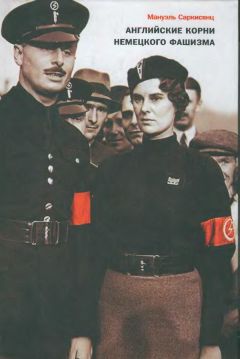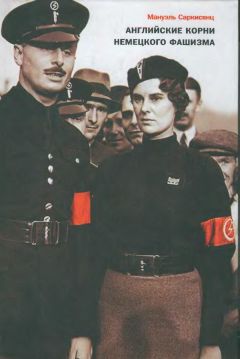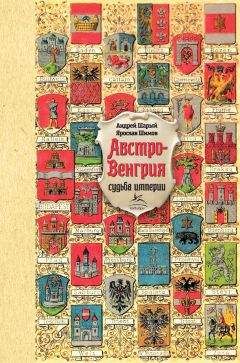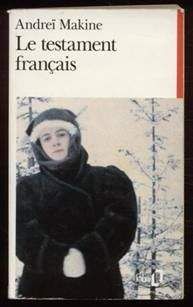1466
Werner Maser, Das Regime (Munchen, 1983), S. 415.
Falin, S. 159f, 524.
John Toland, Hitler (Bergisch Gladbach, 1977), S. 782: Auskunfte von 1971 und 1975 von Gerdy Troost, Ehefrau von Hitlers Architeken, P. L. Troost; Costello, p. 321.
Dr. Aigner, Das Ringen um England (wie Anm. 213), S. 231. Vgl. Sir Norman Angell, The defense of the Empire (о. O.,? 1937); Franz Haider, Kriegstagebuch. Bearbeitet von H. A. Jacobsen, Bd. II (Stuttgart, 1963): Eintragung vom 13. Juli 1940, S. 16, 18, 53.
Klaus Hildebrand, Das vergangene Reich. Deutsche Aussenpolitik von Bismark bis Hitler 1871–1945 (Stuttgart, 1995), S. 728; vgl. Gellermann. S. 121, 29, 39ff.
Hitler, Monologe, S. 73, 76: Nacht vom 27./28. September 1941; H. Thost, Als Nationalsozialist in England (Munchen, 1939), S. 203f.
Hitler, Politisches Testament. Bormann-Diktate, S. 45.
Hitler, Monologe, S. 196: vom 12./13. Januar 1942.
Houston Stewart Chamberlain, Briefe, I (1928), S. 250: Brief vom 22. April 1914 an Prinz Max von Baden.
William Joyce, Twilight over England (1940) in: Selwyn, p. 104.
Hans Grimm. Englische Rede. Wie ich den Englander sehe (1938), S. 270; H. Grimm, Heynade, Buch III, S. 270.
Tony Kushner& Kenneth Lunn, Traditions of Intolerance… Fascist and racist discourse in Britain (Manchester, 1989), pp. 174, 180: R. Thurlow, «Secret history of British Fascism»; Scott Newton, Profits of Peace, The political economy of Anglo-German Appeasement (Oxford, 1996), pp. 168, 152; Griffiths, Patriotism perverted, p. 126, 144f, 186, 230, 237; Scott Newton, pp. 168, 152.
N. J. Crowson, Facing Fascism. The Conservative Party and the European dictators 1935/1940 (London, 1977), p. 177; John Costello, The Ten Days that saved the West (London, 1991), pp. 159, 161f; Kushner & Lunn, p. 180; Newton, p. 152.
Costello, p. 161; Crowson, p. 76; N. Bethell, The War Hitler Won. September, 1939, p. 17f.
Scott Newton, Profits of Peace. The political economy of Anglo German Appeasement (Oxford, 1996), p. 170; Costello, p. 328.
Crowson, p. 249.
Kushner and Lunn, p. 179; Newton, p. 153, 170; Crowson, p. 175; David Cannadine, Decline and Fall of the British Aristocracy (New York, 1999), p. 623.
W. J. West, Truth betrayed (London, 1987), p. 234; Leibovitz and Finkel, second page (not numbered): Introduction by Christopher Hitchens.
Joan Miller, One Girl's War. Personal exploits (Kerry, Ireland, Dingle Co., 1987), pp. 66f, 194f; Rebecca West, The meaning of Treason (London, 2000), p. 263.
Tony Kushner and Kenneth Lunn (Editors), Traditions of intolerance… Fascist and rasist discourse in Britain (Manchester, 1989), p. 176: R. Thurlow, «The Secret history of British Fascism».
S. Newton, p. 185; Griffits, Patriotism perverted, p. 3, 304, 313.
Bernd Martin, Friedensinitiativen und Machtpolitik im Zweiten Weltkrieg 1939/1942 (Dusseldorf, 1974), S. 498. 10 401. Costello, p. 252.
Missed footnotetext.
Costello, pp. XV, 18, 306, 398.
Newton, p. 168f; cf. R. Shepherd, A Class divided, p. 294.
Newton, p. 168f; Costello, p. 464.
Newton, pp. 168, 171f, 174f, 179; Costello, p. 49; Leibovitz and Finkel, pp. 255f.
Costello, pp. 188, 49.
Newton, pp. 180, 184.
Costello, p. 19; cf. Kilzer, Churchill's Deception. The Dark Secret that destroyed Nazi Germany (New York, 1994), pp. 34, 70, 265, 287.
Adolf Hitlers Zweites Buch. Ein Dokument aus dem Jahr 1928 = Institut fur Zeitgeschichte, Quellen und Darsteilungen zur Zeitgeschichte, Band VII (Stuttgart, 1961), S. 159.
Ulrich von Hassell, Vom anderen Deutschland. Aus nachgelassenen Tagebuchern (Zurich, 1946), S. 205–223.
Costello, p. 19.
Hitler, Monologe, p. 196; 12./13. Januar, 1942.
Louis Kilzer, Churchill's deception, p. 70.
Newton, p. 191.
Sir Alexander Cadogan, The Diaries, 1938–1945. Edited by David Dilks (London, 1971), p. 287: 20 May, 1940.
Newton, pp. 193, 187.
Captain A. H. Maule Ramsay, The Nameless War (Berkshire, 1992), p. 69.
Das Schwarze Korps vom 27. November 1941, S. 5: «Ein Stuka gefallig» = Das Schwarze Korps. Organ des Reichsffuhrers SS. Ein Faksimile Querschnitt hrsg. von H. Heiber und Hildegard von Kotze (Bern und Munchen, o. J.), S. 179.
Klaus Hildebrand (wie Anm. 1085), S. 643f, 805, 807.
Forestall, Diaries, entry of 27. December 1945 (New York, 1951), p. 121.
Heinrich Himmler, Geheimreden 1933–1945. Edited by F. Smith and Agnes F. Peterson (Frankfurt, 1974), p. 232: Speech of 26 July, 1944; Captain Maule Ramsay, The Nameless War, pp. V, 119f.
Scott Newton, Profits of Peace. The political economy of Anglo-German Appeasement (Oxford, 1996), pp. 168, 152; David Cannadine, Decline and Fall of the British Aristocracy (New York, 1999), pp. 527, 623, 546.
Newton, p. 168; R. Shepherd, p. 32.
Newton, p. 169.
Cannadine, pp. 546f.
Captain Maule Ramsay, The Nameless War, pp. V, 119f; Francis Selwyn, Hitler's Englishman, The crime of Lord Haw-Haw (London, 1987), p. 120.
Selwyn, p. 18.
John Alfred Cole, Lord Haw-Haw and William Joyce. The full story (London, 1964), pp. 33, 31.
William Joyce, National Socialism Now (n. p., 1937), p. 24.
Cole, pp. 80, 295.
William Joyce, National Socialism Now, p. 57, 24, 55, 66.
Verify footnotemark c 1518
Например, этому «англичанину Гитлера» пришлось как-то выслушать следующее объяснение немцев: «Хоть Вы и британец, Вы получите такие же карточки на питание, как и все другие граждане» (прим. автора).
Cole, pp. 145, 164, 278, 216f, 245, 28; Selwyn, p. 120.
William Joyce, National Socialism Now, pp. 70, 64.
Marquis de Slade, Yeomen of Valhalla (Mannheim, 1970), pp. 33, 82, 28; Lord Lloyd, The British Case (1939), p. 48; Adrian Weale, Renegades, Hitler's Englishmen (London, 1994), p. 60.
Rebecca West, The Meaning of Treason (London, 1949/2000), p. 112.
De Slade, pp. 35, 5; B. Semmel, Imperialism and Social Reform, p. 256; K. Arns, Index der anglo-judischen Literatur (Bochum, 1939), S. 9, cited in Hans Galinsky, «Sendungsbewusstsein der politischen Fuhrungsschicht im heutigen Britentum»: Anglia. Zeitschrift fur englische Philologie, Vol. LXIV(Halle, 1940), pp. 9f, 331.
John M. Mackenzie (Editor), Imperialism and Popular Culture (Manchester, 1986), pp. 173f.
De Slade, p. 113; Ronald Seth, Jackals of the Reich. The story of the British Free Corps (London, 1973), p. 124.
De Slade, pp. 20ff, 72, 71, 63; Hans-Werner Neulen, Eurofaschismus und derzweite Weltkrieg. Europas verratene Sonne (Munchen, 1980 — Universitas Verlag), p. 169; Adrian Weale, Renegades, p. 176.
De Slade, pp. 25f, 35, 47, 29f, 14–15, 18; Seth, pp. 82f; George H. Stein, Geschichte der Waffen-SS (Dusseldorf, 1967), S. 170f: Report of the SS-Obergruppenfuhrer Gottlob Berger to Himmlers Staff. US. Military Tribunal (Nurenberg), Fall 11, PDB 66-H, p. 46f.
Selwyn, Hitler's Englishman, p. I24ff, 216.
De Slade, pp. 26, 76; Adrian Weale, Renegades, p. 120, 161, 200, 204, 206.
Madelaine Bunting, The Model Occupation. The Channel Islands under German rule 1940–1945 (New York, 1995), p. 83.
Ibid., p. 83.
Ibid., p. 43, 82f, 40f; Norman Longmore, If Britain had fallen (London, 1972); George Forty, The Channel Islands at War. A German Perspective (Shepperton, 1999), p. 139.
Bunting, p. 84.
Ibid., p. 106ff, 113.
Ibid., p. 76, 78f, 89f, 106rT, 113f.
Ibid., p. 268.
Thost, Als Nationalsozialist in England (Munchen, 1939), S. 322; Bunting (1995), pp. 278, 15, 299, 304, 260, XXX, 238, 81; Asa Briggs, The Channel Islands. Occupation and Liberation 1940–1945 (London, 1995), p. 45.
Captain Maule Ramsay, The Nameless War, p. 69.
H. Sundernann, Alter Feind — was nun? (Leoni, 1955), S. 7, 70f, 205.
Klaus Hildebrand, Das vergangene Reich (wie Anm. 1085), S. 759; Thomas Carlyle «The Nigger Question» 1948: Miscellaneous Essays, Vol. IV (London, 1899), p. 375.
O. D. Schuddekopf, Revolutions of our Time. Fascism (New York, 1973), p. 17, 171; Gerwin StrobI, The Germanic Isle. Nazi Perceptions of Britain (Cambridge, 2000), p. 87; K. D. Bracher, «…Letters to the NSDAP… Eisenach 1939–1940»: Journal of Modern History, LXVIII, Nr. 4 (Dezember 1996), S. 903, with reference to Dietrich Orlow, History of the Nazi Party (Pittsburgh, 1973), p. 38; H. Rauschning, Revolution des Nihilismus (Ausgabe von 1964), S. 87f, 96, angefuhrt von Th. Schieder, Rauschnings Gesprache mit Hitler als Geschichtsquelle = Rheinisch-Westfalische Akademie der Wissenschaften, Vortrage, G 179 (1971), S. 56; Friedrich Doucet, Im Bannedes Mythos. Psychologie des Dritten Reiches (Esslingen, 1979), S. 203f; Иванов-Разумник. История русской общественной мысли. Индивидуализм и мещанство. Т. I. СПб., 1911. С. 18; см. также: Пути революции. Берлин, 1923. С. 8–9.
Hermann Marcus, Der Spiesserstaat (Hamburg, 1977), S. 189; Klee & Dressen «Gott mit uns». Deutscher Vernichtungskrieg im Osten (Frankfurt, 1989), S. 39: Tagesbefehl des Generalfeldmarschalls von Reichenau vom 28. Oktober 1941. Vgl. E. Sarkisyanz, Russland und der Messianismus des Orients (Tubingen, 1955), S. 199, Fussnote 14.
A. Glucksmann, Die Meisterdenker (Rheinbeck, 1978), S. 45; Struve, Elites (as reference 190), p. 458.
H. Hartle, Alfred Rosenberg, Grossdeutschland (1970), S. 238; De Slade, p. 123;
Eckenhard Struhldreher («Leibstandarte» of the SS), in the German Television, MDR, 21. July, 1999, at 9 p. m.





